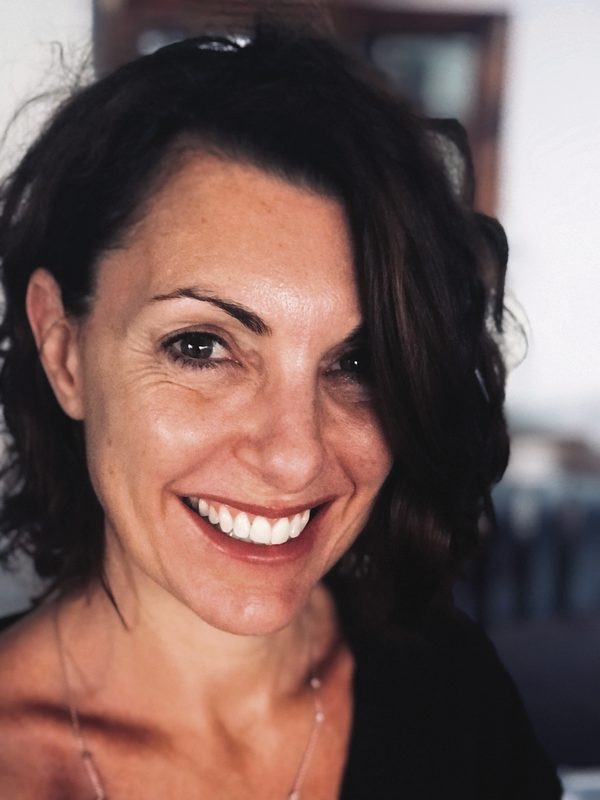Amidst COVID-19 lockdowns, author Kerri Sackville found herself alone. And it was something that, at first, didn’t sit comfortably. But, going through a divorce and having her coping mechanisms pulled out from under her, being alone was something she was quickly forced to figure out. And, she admits, she’s much better for it.
So, she’s sharing her research and her story with others, in the hopes that we can all carve out some alone time. Because we all most certainly need it.
“We were in lockdown, I was a single mum, my three kids were at home. It was just a miserable time for everyone. I didn’t have a lot of work because the media had kind of crashed and burned. And I was really unhappy,” Sackville told The AJN.
“None of my usual comforts and distractions were available to me – seeing my friends, hanging with my mum, going on dating apps – so I found myself spending huge periods of time on my phone, just scrolling. And I realised that I couldn’t go on like that.”
So she resolved to put her phone down and try to sit with her thoughts and feelings.
“I became a lot calmer, a lot more content. I learned to comfort and soothe myself. Before that I’d been relying on other people to do that for me. I became a lot more self-aware. I worked out what was important to me and what wasn’t. I hadn’t asked myself those questions before.”
Once she went through the process, Sackville decided to figure out why alone time was so revolutionary, delving into lots of research, despite she said, not really being a researcher. What she found out, and what she shares in The Secret Life of You, is that we’re losing the art of being alone with our thoughts and this needs to be fixed.
“The less you are given an opportunity to be alone with your thoughts, the less skilled you become at daydreaming, and allowing your mind to wander”
“The absolute basic criteria for being able to spend time alone is that you have to be able to manage your dark thoughts and we all have dark thoughts,” she explained, giving the example of her own anxiety. “I have had to manage my anxiety forever. But I have the capacity now that if I get anxious or dark thoughts or my mind is wandering into a bad place, I can actually redirect my thoughts.”
What Sackville found during her research is that we all can be alone with our thoughts. Those who struggle are afraid.
“If they start thinking about things that upset them or worry them or bad things that have happened in the past or things to worry about the future, [they’re scared] that they won’t be able to pull themselves out of it.”
But Sackville said, you don’t need to start big, saying she’s not telling people to go to a silent retreat for three days. Just use the incidental moments.
For parents, that means when the kids go to sleep, don’t pick up your phone and idly scroll. Drive without the radio on. Go for a walk without a podcast.
“When you’re on the toilet, don’t pick up your phone,” she laughed.
A big problem, she found, is that all the apps we’re mindlessly scrolling through are designed to keep us coming back. Which is why, she said, kids who have grown up with unlimited access to screens are struggling the most.
View this post on Instagram
Sackville explained that it’s her older kids, who are both in their 20s, who can do things without distractions and are willing to seek alone time with their thoughts. Her youngest, who is 15 and has never had any moment in life without a device, struggles.
“The less you are given an opportunity to be alone with your thoughts, the less skilled you become at daydreaming, and allowing your mind to wander,” she said, going on to remind us that when our little kids are talking to their toys or even talking to their toes, they’re using their imagination, getting in touch with their thoughts and actually having a conversation with themselves.
The change, she said, will come when we start to reframe being alone as something positive.
“The way we construct alone time is so important because the kids absorb those messages. And little kids are so good at alone time,” she said. “When they’re bored, that’s when their imaginations kick in, and that’s when they pick up the knife and fork and spoon and build something or make the shoebox into a castle.”
Sackville said what’s important is the book isn’t just based on her opinion. A lot of research went into it and every chapter is framed by a quote, whether that be from a scientist, a philosopher, a film or even Dr Seuss.
Her favourite, she said, is one by French mathematician, physicist, inventor, philosopher, and writer, Blaise Pascal, who said “all of humanity’s problems stem from man’s inability to sit quietly in a room alone”.
“Someone said to me, I need alone time because there are knots in my brain that need untangling,” Sackville recalled. “We all have these knots. If we never untangle them, they’re just going to grow. We’re not designed to have this much stimulation. We’re meant to be outside looking at the sky, not consuming content all the time. It’s so important that we have periods of time alone with our thoughts.”
The Secret Life of You is published by Pantera Press, $34.99 rrp


comments